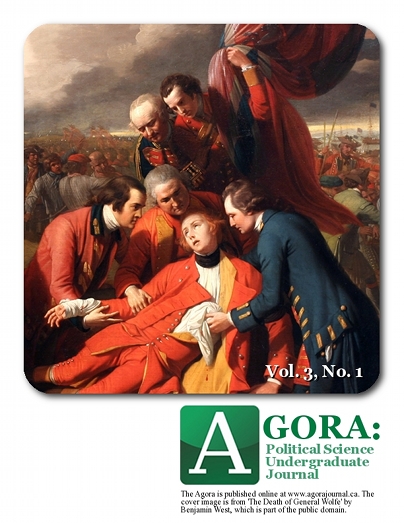Making Liberal Democracy Ethical: Aristotle on the Unity of Ethics and Politics
DOI:
https://doi.org/10.29173/agora19041Keywords:
Liberal Democracy, Ethics, Aristotle, private domain, public domainAbstract
Contemporary liberal democracy recognizes a fundamental distinction between matters of “public” and “private” domain that amounts to a separation of ethics from politics. Such a distinction is, however, a recent one insofar as the history of political thought is concerned. Political and ethical matters can and in fact have been thought of and practiced as a single project. Aristotle is one philosopher who has approached ethics and politics not as two distinct subjects but as a single unified project: the project of living well. This essay examines Aristotle’s ethical-political project and engages with contemporary thinkers who have grappled with Aristotle’s political philosophy as a possible remedy for the problems currently confronting liberal democratic politics. It argues that the best remedy for the ills of liberal democracy that arise out of the continued prevalence of relativism in liberal democratic discourse is a re-thinking of liberal education that unites ethical and political considerations. The author contends that Aristotle’s political philosophy offers us a vantage point from which this unity may be perceived and, hopefully, implemented.
Downloads
Published
Issue
Section
License
Authors who publish with this journal agree to the following terms:
- Authors retain copyright and grant the journal right of first publication with the work simultaneously licensed under a Creative Commons Attribution License that allows others to share the work with an acknowledgement of the work's authorship and initial publication in this journal.
- Authors are able to enter into separate, additional contractual arrangements for the non-exclusive distribution of the journal's published version of the work (e.g., post it to an institutional repository or publish it in a book), with an acknowledgement of its initial publication in this journal.
- Authors are permitted and encouraged to post their work online (e.g., in institutional repositories or on their website) prior to and during the submission process, as it can lead to productive exchanges, as well as earlier and greater citation of published work.


